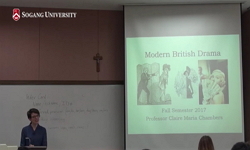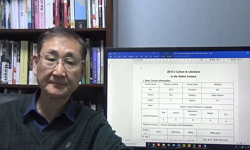This writing scrutinizes the process of how post-Marxism has been accepted in the 1990s in Korea and attempts critical examination of the regarding main issues. Existing socialist countries were collapsing while the social movements in the 1980s were ...
http://chineseinput.net/에서 pinyin(병음)방식으로 중국어를 변환할 수 있습니다.
변환된 중국어를 복사하여 사용하시면 됩니다.
- 中文 을 입력하시려면 zhongwen을 입력하시고 space를누르시면됩니다.
- 北京 을 입력하시려면 beijing을 입력하시고 space를 누르시면 됩니다.

탈근대, 탈식민, 탈민족 포스트 담론 20년의 성찰 한국에서 포스트맑스주의의 수용 과정과 쟁점들 = Acceptance Process and Issues of Post-Marxism in Korean Society
한글로보기https://www.riss.kr/link?id=A99549887
- 저자
- 발행기관
- 학술지명
- 권호사항
-
발행연도
2012
-
작성언어
-
-
주제어
맑스주의 ; 포스트맑스주의 ; 급진민주주의 ; 포스트구조주의 ; 포스트모더니즘 ; 개혁적 자유주의 ; 사회운동 ; Marxism ; post-Marxism ; radical democracy ; post-structuralism ; post-modernism ; reformist liberalism ; social movement
-
KDC
900
-
등재정보
KCI등재
-
자료형태
학술저널
-
수록면
57-90(34쪽)
- 제공처
-
0
상세조회 -
0
다운로드
부가정보
다국어 초록 (Multilingual Abstract)
This writing scrutinizes the process of how post-Marxism has been accepted in the 1990s in Korea and attempts critical examination of the regarding main issues. Existing socialist countries were collapsing while the social movements in the 1980s were falling. In this circumstances, post-Marxism appeared with the fashion of all sorts of post- discourses in Korean society. However, unlike the radical democratic strategy of Laclau and Mouffe, one of the representative post-Marxism theorists, post-Marxism in Korea aimed at reformist liberalism and anti-Marxism which argued that the revolution of capitalism is impossible or either undesirable. The stance which sticked to classic Marxism was hostile to post-Marxism while the stance which accepted post-Marxism interpreted the post-Marxism of Laclau and Mouffe arbitrarily and perverted the meaning. Accordingly, discussions over post-Marxism expedited impoverishment of the theory and anti-intellectualism which judges everything from the political perspective. Laclau and Mouffe`s theory and strategy were practically excluded from the academic discussions. In this process, ``combination of Marxism and post-structuralism``, the issue Laclau and Mouffe raised did not receive attention at all. Nevertheless, Marxism and post-structuralism both think political practices and resistance based on the universality of the excluded, and this implies that Marxism and post-structuralism have possibility to overcome each other`s limit through communication and discussion.
동일학술지(권/호) 다른 논문
-
탈근대, 탈식민, 탈민족 포스트 담론 20년의 성찰 ‘포스트’ 담론의 유령들 -애도의 애도를 위하여-
- 고려대학교 민족문화연구원
- 진태원 ( Tae Won Jin )
- 2012
- KCI등재
-
탈근대, 탈식민, 탈민족 포스트 담론 20년의 성찰 포스트사회과학 사회적인 것의 과학, 그 이후?
- 고려대학교 민족문화연구원
- 서동진 ( Dong Jin Seo )
- 2012
- KCI등재
-
탈근대, 탈식민, 탈민족 포스트 담론 20년의 성찰 문학의 탈정치화와 포스트 담론의 파장 -민주화 이후 한국문학의 전개와 쇠락
- 고려대학교 민족문화연구원
- 이명원 ( Myung Won Lee )
- 2012
- KCI등재
-
일기를 통해 본 전통과 근대, 식민지와 해방 자기를 쓰다 -18세기와 19세기 독일어권 일기에 드러난 경험, 주체성 그리고 개인성에 대하여-
- 고려대학교 민족문화연구원
- 이사벨리히터 ( Isabel Richter )
- 2012
- KCI등재




 KCI
KCI KISS
KISS






